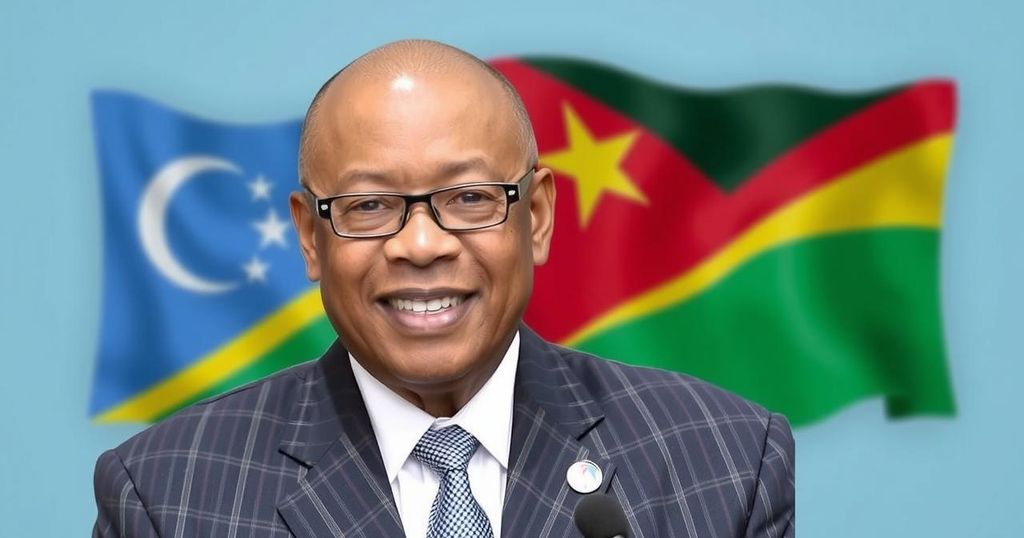SADC Prepared to Assist Mozambique Amid Rising Post-Election Violence

Zimbabwe’s President Emmerson Mnangagwa announced that SADC is ready to assist Mozambique in addressing post-election violence that has resulted in over 100 deaths. Calls for dialogue are emerging from various leaders, emphasizing the need for peace and stability as Mozambique grapples with the aftermath of disputed elections.
Zimbabwe’s President Emmerson Mnangagwa, in his capacity as the chair of the Southern African Development Community (SADC), has stated that the regional bloc is prepared to assist Mozambique, which has been grappling with post-election violence that has resulted in over 100 fatalities, according to human rights organizations. The unrest follows the recent elections, where the opposition alleges that their electoral victory from October 9 was unjustly revoked.
President Mnangagwa emphasized the need for an end to violence in Mozambique, especially in light of the Constitutional Council’s confirmation of a 65% victory for the ruling Frelimo party. In parallel, South Africa’s Minister of International Relations and Cooperation, Ronald Lomola, has called for an urgent dialogue among all factions to facilitate healing within Mozambique and set the nation on a path toward political stability and development.
Lomola declared, “South Africa calls on all parties to commit to an urgent dialogue that will heal the country and set it on a new political and developmental trajectory. Furthermore, South Africa is ready to assist Mozambique in any manner to facilitate this dialogue.”
During this turmoil, Venancio Mondlane, a former presidential candidate, also expressed his concerns about the situation, noting, “We are not focused on our brother who is also suffering, who has been massacred by Frelimo. That’s not our focus. If you want change in the country, a revolution, my brothers, let’s defend the shops of our neighbors, the companies of our neighbors, let’s defend them.”
Khanyo Farise, Deputy Regional Director for Amnesty International in East and Southern Africa, condemned the government’s crackdown on protesters, stating that it represents one of the most severe suppressions of civil expression. She reported, “Since the outcome of the elections on Oct. 9, police have responded with excessive use of force against those who decide to express themselves and to exercise their right to freedom of association and assembly. We’ve seen police using live ammunition, using rubber bullets and using various forms of excessive force against protesters. Many people have been seriously wounded, and over 110 people have been killed.”
Borges Nhamirre, a researcher with the Institute for Security Studies, highlighted the necessity for peace to restore operations at Mozambique’s ports, which are critical to trade for neighboring countries like Zimbabwe and Zambia. He stated, “The fastest way to solve this problem is dialogue. There is no alternative to dialogue.”
With calls for peace and dialogue emanating from both the opposition and regional organizations such as the SADC and the African Union, there exists a glimmer of hope for an eventual resolution to the ongoing crisis in Mozambique.
The recent political landscape in Mozambique has been tumultuous due to allegations of electoral fraud following the October 9 elections. The ruling party, Frelimo, was declared the victor, yet the opposition has vehemently contested this outcome, leading to significant civil unrest. This unrest has not only resulted in tragic loss of life but has also garnered international attention, prompting neighboring countries and regional blocs like the SADC to offer support and call for dialogue. The situation underscores the broader implications of political strife in Mozambique on regional stability and cooperation.
In summary, the events unfolding in Mozambique present a critical challenge that demands immediate attention and intervention. The SADC, led by Zimbabwe, is poised to facilitate dialogue aimed at resolving the violent aftermath of the election disputes. With calls for peace from various stakeholders and organizations, it is imperative that all parties engage in constructive discussions to restore order and uphold democratic principles in Mozambique. Only through dialogue can the country progress towards healing and foster a stable environment conducive for development and cooperation among its neighbors.
Original Source: www.voanews.com







